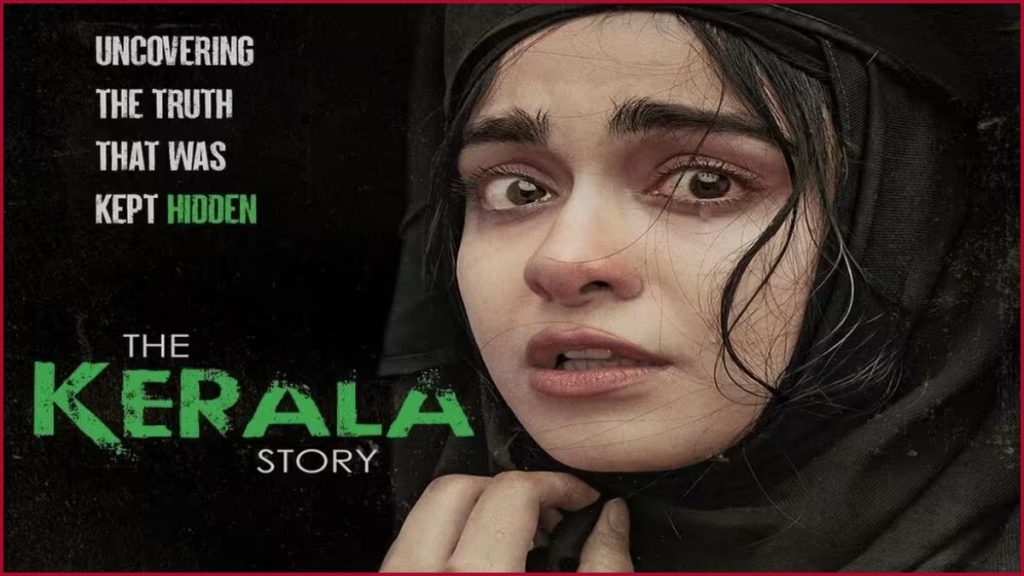New Delhi: The Kerala Story takes up a communal agenda and a hot issue to address but in the most frightening way possible. It is very disturbing that the narrative centers on the alleged radicalization and conversion of young Hindu women to Islam in Kerala, which forces them to join ISIS and become either suicide bombers or sex slaves. The movie also prompts a debate on how communism and religion are used to terrorize and brainwash people.
The Kerala Story contains Karl Marx’s theories and questions the Ramayana, resulting in a religious debate and therefore all of the criticism and anger the movie has received.
The Kerala Story tells the story of three girls whose lives are shattered by ISIS. It starts in the interrogation room when Adah Sharma is shown disclosing facts about her awful and sad history, as well as how she ended herself there. Her biography is centered on four nursing students. The tale is told from Shalini’s point of view, and she discusses her roommates Gitanjali (Siddhi Idnani), Nimah (Yogita Bihani), and Asifa (Sonia Balani).
Shalini Unnikrishnan alias Fatima (Adah Sharma), a Hindu nursing student from Kerala, gets duped by Islamic vanguards into becoming an ISIS terrorist. The video also emphasises ‘Love Jihad’ propaganda, in which Muslim males influence Hindu girls into converting to Islam and abandoning their family. Asifa, Shalini’s roommate, has a hidden objective of exposing and converting her housemates to Islam.
To summarise, The Kerala Story solicits compassion for Shalini but becomes overly theatrical and feels forced. Many scenes show up to be purely manipulative, leaving us to question our own religious beliefs, whether Hindu or Muslim. Bringing the truth of three real-life victims of ‘Love Jihaad’ to the cinema was a difficult effort, and the filmmakers are just halfway there. A couple aspects in the film look implausible.
While director Sudipto Sen attempts to strike a balance between pain, brutality, and religion, he falls short in some ways. An abrupt conclusion indicates a flaw in our Intelligence Bureau and defence system. The content and direction are both underwhelming. It isn’t sufficiently convincing to elicit the uneasy feeling that a story requires.

